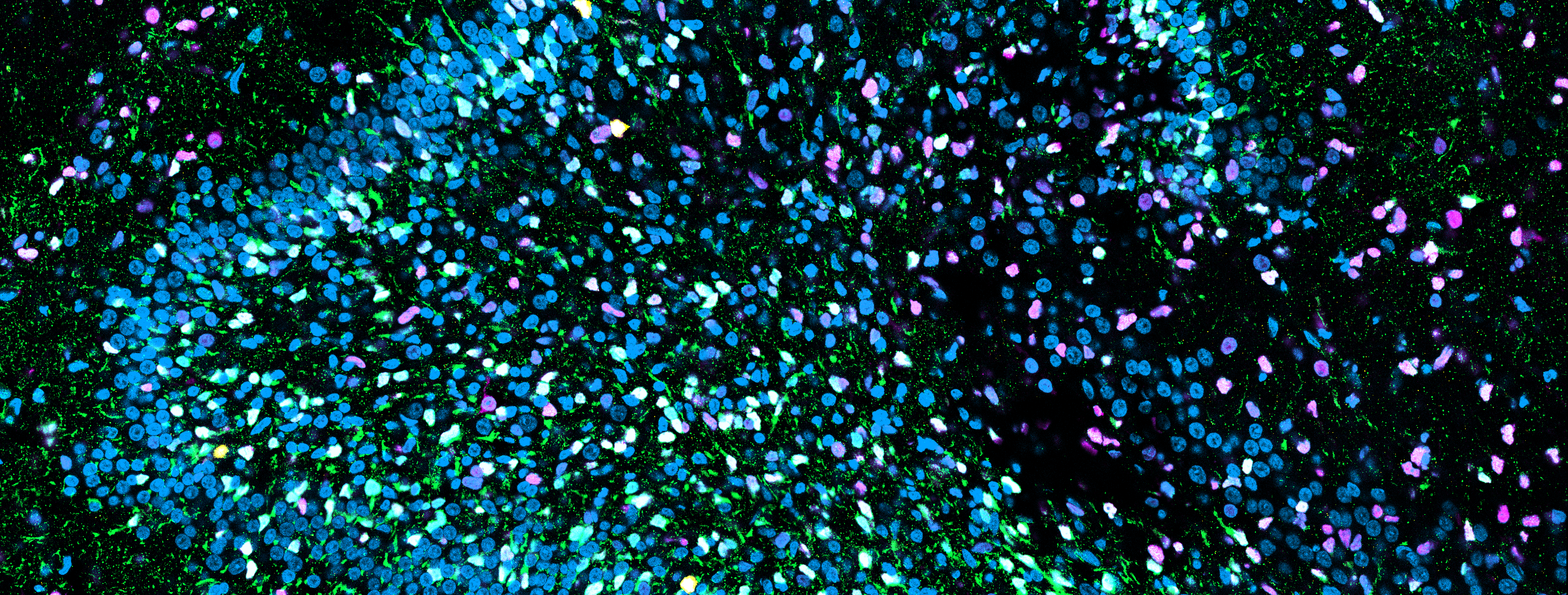Speaker
Description
FOXP1 is a transcription factor critical for human brain function from early development. Indeed, heterozygous mutations in this gene cause FOXP1 syndrome, a rare neurodevelopmental disorder characterized by language impairment, intellectual disabilities, and autistic traits [1]. FOXP1 levels are affected also in Huntington disease and cancer. However, mouse models of FOXP1 haploinsufficiency or deficiency do not reveal major cortical phenotypes, suggesting human-specific pathogenic mechanisms.
To start to gain insight into relevant cell types, we analyzed its expression in human brain using human pluripotent stem cell (hPSC)-derived forebrain organoids (hCOs) [2]. IF analysis and gene expression data revealed FOXP1 expression in neural progenitor cells, excitatory cortical neurons and microglia, the brain's resident immune cells, which play essential roles in neurodevelopment and pathology. These results suggest the involvement of multiple cell types.
To start to gain insight into possible cell type specific targets, we have performed a FOXP1 CUT&RUN experiment [3] in hCOs enriched with neural progenitors. Additionally, we will then present several strategies that we are developing to functionally explore FOXP1 functions across cell types. We are employing the CRISPR-Cas9 system to knock out (KO) FOXP1 in hPSC lines to generate isoform-specific knock-out lines. Finally, we are developing an in vitro neuroimmune assembloid (NIA) model by engrafting hPSC-derived microglia progenitors into hCOs, allowing us to explore how FOXP1 function in microglia development and function.
In conclusion, our study underscores the utility of hPSCs and hCOs technologies for functional studies of human brain development and disease, particularly these approaches will provide valuable insights into the role of FOXP1 in brain development and its link to human brain dysfunctions.
| Author(s) | 1,2Sara Elisabetta Barilà*, 1Sara Ferro*, 1Chiara Riccardi, 1,2Anna Cascio, 1Paolo Vaccari, 3Tamina Weiss, 1,2Giulia Protti, 4Janja Kopić, 4Željka Krsnik , 3Claudio Cantù, 1,5Veronica Krenn |
|---|---|
| Affiliation(s) | "1 Department of Biotechnology and Bioscience, University of Milan-Bicocca, Italy 2 DIMET PhD Student, School of Medicine and Surgery, University of Milan-Bicocca, Italy 3 Wallenberg Centre for Molecular Medicine, Linköping University, Linköping SE-58183, Sweden 4 Croatian Institute for Brain Research, School of Medicine, University of Zagreb, Croatia 5 Human Technopole Early Career Fellow, Italy" |

